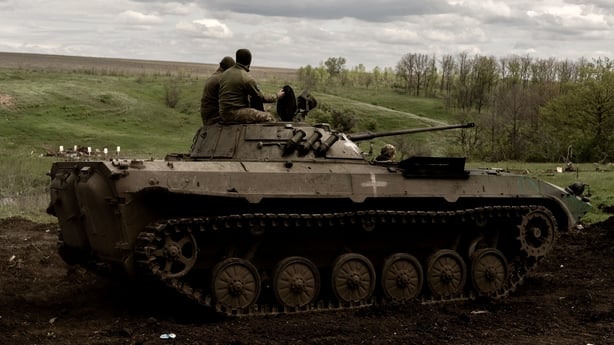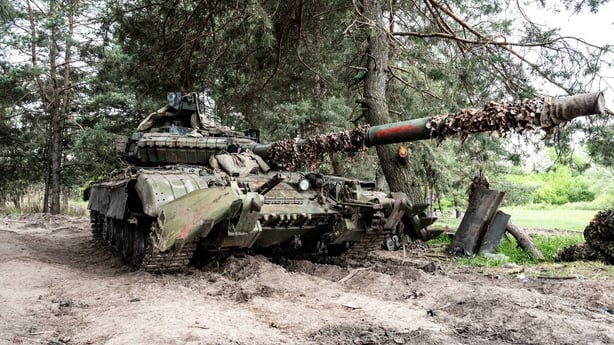The head of Russia's private Wagner mercenary group Yevgeny Prigozhin has said Moscow's conventional army is fleeing its positions near the eastern Ukraine hotspot town of Bakhmut.
"The units of the defence ministry simply went fleeing from the flanks" of Bakhmut, Mr Prigozhin said, adding that "the flanks are failing, the front is collapsing" in that area.
He also accused Moscow's military leadership of downplaying the situation around the embattled Ukrainian town.
"Attempts by the defence ministry in the information field to sugar coat the situation - it's leading and will lead to a global tragedy for Russia," he said in a video statement released on social media.
"For this reason, we must stop lying immediately".
Russian officials earlier said that Ukrainian forces had attacked Russian positions along almost 100km of the front line near Soledar, a small mining town near Bakhmut.

As anticipation grows of a Ukrainian counteroffensive aiming to drive Moscow's forces out of the land they have seized in the last 15 months, Deputy Defence Minister Hanna Maliar confirmed earlier reports that Ukraine had made some gains near Bakhmut, but appeared to play down suggestions of a wider push.
The Russian Defence Ministry said 26 attacks involving over 1,000 troops and up to 40 tanks near Soledar on Thursday had been repulsed. In one area, Russian forces had fallen back to "more favourable positions" near Bakhmut.
Reuters was not able to verify the battlefield reports, and there was no immediate response from Kyiv, which during previous offensives has maintained strict silence about its operations while they were under way.
An attack at Soledar, just north of Bakhmut, would appear to substantiate reports by Russia's Wagner private army that Kyiv was launching its offensive on the city's north and south flanks, aiming to surround it. Earlier this week, a Ukrainian unit claimed to have routed a Russian brigade southwest of Bakhmut in Ukraine's biggest advance for six months.
Without giving details, Ukrainian deputy defence minister Maliar said Kyiv's forces had advanced by about 2km this week around Bakhmut without ceding any ground.

A claim of such swift progress is rare in an attritional battle in which Russia has made incremental advances over the last 10 months without being able to claim the city.
But she seemed to imply this was not the start of the major, long-awaited assault: "This situation has actually been going on in the east for several months," she wrote. "That's it. Nothing more is happening."
Moscow has been preparing since last autumn for an expected onslaught, and built lines of anti-tank fortifications along hundreds of miles of front.
It has also begun evacuating civilians who have been living near the conflict zone in Ukraine's partially occupied Zaporizhzhia province to areas farther from the expected advance by Kyiv's forces.
Read more:
Latest Ukraine stories
In comments published earlier, the commander of Russia's Black Sea Fleet said its defences were also being tightened amid a flurry of Ukrainian drone strikes targeting its home base, the Crimean port of Sevastopol.
Ukrainian President Volodymyr Zelensky warned in a Telegram post that "our path ahead is not easy", but said Ukraine was "much stronger now than last year or in any other year of this war for freedom and independence of our country".
Western countries have sent hundreds of modern tanks and armoured vehicles to Ukraine and trained thousands of its soldiers in anticipation of the offensive.
On Thursday Kyiv secured a promise from Britain of long-range cruise missiles, breaking one of the last big Western taboos over weaponry previously deemed to carry too great a risk of provoking Russia. In the past, other allies have quickly followed suit after Britain announced new types of weapons.
Russia for its part has tried to dodge Western sanctions to buy weapons, such as drones from Iran, where it can. Washington has warned countries that they could face sanctions for providing material support to Russia's invasion.

